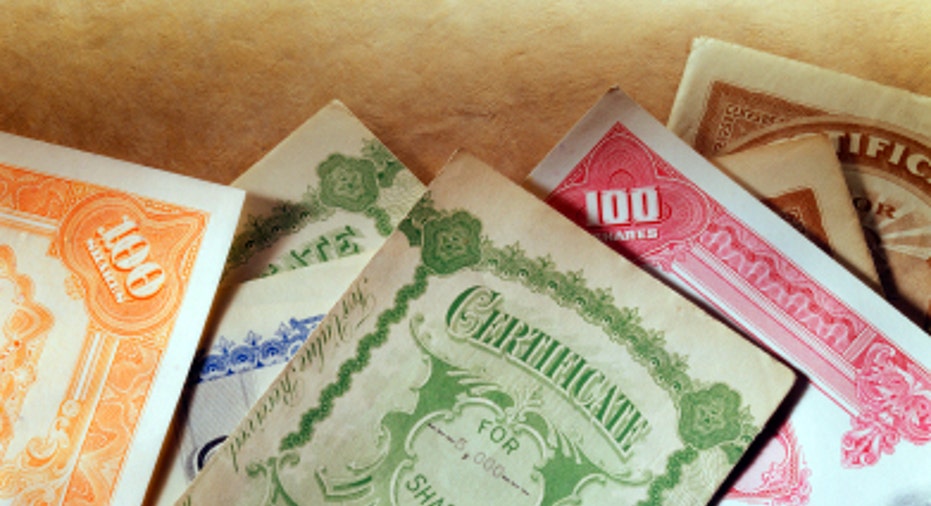Overseas Government Bonds Tempt U.S. Buyers

Americans are hungry -- starving actually -- for something they had come to expect: healthy investment yields. But the past two years have been brutal for those who rely on fixed-income investments such as U.S. Treasuries and corporate bonds, with returns hovering at or near record lows.
Against that backdrop, investing in the sovereign debt of foreign countries can look very attractive.
Take Ireland and Greece. The yields on their 10-year government bonds reached a sky-high 9% and 11% in February, respectively. But with the generous returns come more risk than investors realize.
"The risk side of it is being ignored as people hunt around to try to get a higher rate of return," says Kent Grealish, a registered investment adviser and co-owner of Quacera Capital Management in San Bruno, Calif.
Indeed, the search for higher returns in risky foreign government bonds is just part of an overall rise in investors' appetite for high-risk, high-reward bonds known informally as junk bonds, Grealish says.
Credit Risk a Big Gamble
Hildy Richelson, president of the Scarsdale Investment Group in Blue Bell, Pa., says credit risk is one of the biggest gambles that investors take when they invest in foreign government bonds, especially with so many countries carrying record levels of debt.
All bonds carry some credit risk, or the danger that the bond issuer won't be able to pay the interest or principal when due. Grealish says that risk can be almost nonexistent with U.S. Treasury bonds or very significant with junk bonds rated less than a "BB" by credit rating agencies such as Moody's.
Like corporations, governments sometimes default on all or part of their debts, suspending payments or restructuring the bonds to relieve financial distress at the expense of private bondholders. From 1999 to 2009, there were 17 incidents of sovereign default involving such countries as Russia, Indonesia and Argentina, according to data from Standard & Poor's.
And even if a government doesn't actually default on its debts, downgrades in the country's credit quality can cause the price of any of its bonds to fall, causing investors who sell their bonds to take a loss, Grealish says.
In the past, developing countries often presented the greatest risk of default. But Richelson says some developed countries may default in the next few years. Greece is carrying more than 100 percent of its gross domestic product in debt and troubled economies such as Italy and Ireland are not far behind.
Currency Fluctuations Pose Risk
Earning money on your investments abroad is all well and good, but eventually you've got to bring that money back home to spend. When that happens, you'll not only see your earnings eroded by significant foreign exchange conversion fees, but even small movements in the value of international currency can have a huge influence on your overall return, Richelson says.
"Instead of getting the touted 7% or 8% you end up getting 3% or 4%," Richelson says.
The Foreign Politics Wild Card
Currency risk is exacerbated when countries in financial trouble choose to deliberately devalue their currency. But currency devaluation is only one way countries put foreign investors at the mercy of that country's political system, Richelson says.
Foreign governments can choose to raise taxes on foreign bondholders, place restrictions on how bonds can be bought and sold or simply decide to stop bond payments they still can afford to make, she says.
Stan Richelson, co-author with his wife, Hildy Richelson, of "Bonds: The Unbeaten Path to Secure Investment Growth," cites Brazil as an example. It limits the amount of Brazilian government bonds that foreign investors can sell in a given period. While those limits may help stabilize the country's economy, they also reduce flexibility for U.S. investors who elect to invest in the country.
Grealish agrees that the sometimes-capricious behavior of foreign governments can create problems for bondholders. "The real risk to bondholders is that the government might change the rules," he says.
All this risk means foreign sovereign debt performs more like equities than like investment-grade U.S. bonds, says Hildy Richelson.
If you're determined to search for higher yields outside the U.S., the Richelsons suggest Yankee bonds, which are bonds issued by foreign governments and corporations but denominated in U.S. dollars.
Yankee bonds cut out the currency risk associated with investing in foreign debt, although the credit risk and political risk remain, Hildy Richelson says.
Foreign Deposits Not Much Safer
In a world where the average yield on a one-year certificate of deposit is less than 0.5%, searching the globe for a better deal on your deposits might seem like a smart play. Deposit accounts in foreign countries often can garner higher interest rates than U.S. deposits, but such accounts carry many of the same risks of foreign government bonds.
Grealish remembers a time in the 1980s when many American savers sought higher savings yields in Mexican bank accounts. The result?
"The Mexican government went and devalued the currency, and (American savers) lost a ton of money," Grealish says. "If you're strictly looking at savings accounts -- investing in the currency to get that higher rate of return -- you've got to ask yourself, 'What is this going to be worth when I convert it back into dollars?'"



















